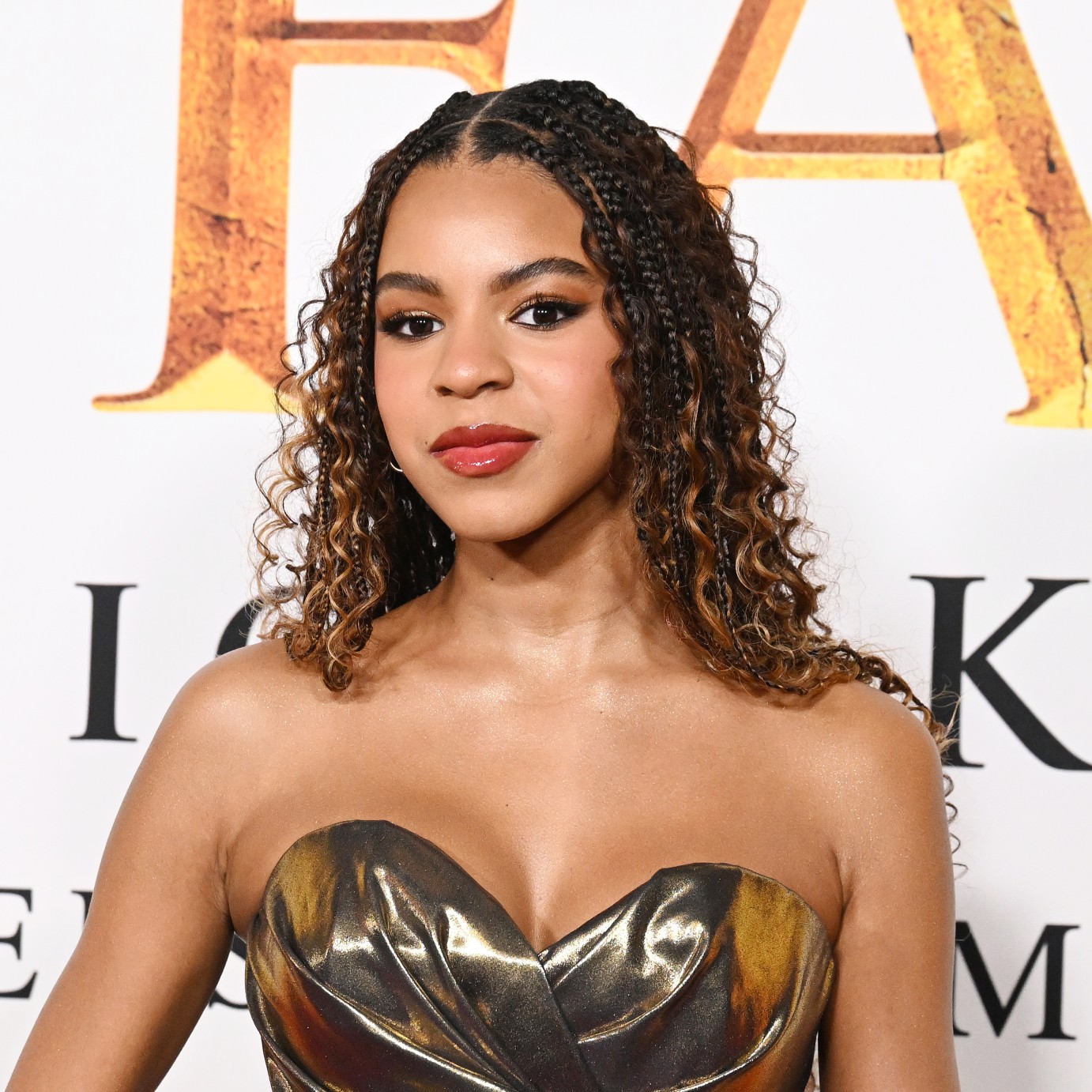
On Dec. 9, Beyoncé attended the premiere of ‘Mufasa,’ alongside a special guest—her daughter Blue Ivy Carter. The duo stars in the film as mother and daughter, so it likely comes as no surprise that they wore coordinated looks for the premiere. Beyoncé chose a strapless Balmain dress with a deep neckline and bustier cups, while Blue Ivy wore a form-fitting gold gown that was custom-designed by Christian Siriano. Some social media users praised the teen’s look, mentioning that she looked like a "princess" and a "spitting image of her mother."
That being said, over on X, formerly known as Twitter, some people are debating whether Blue Ivy wearing makeup was appropriate for someone her age. “Blue Ivy wearing that dress and makeup at age 12 . . . Do her stylist or her mom’s stylist know this?” one person wrote. “God forgive me but Blue Ivy is too young for this makeup and outfit,” said another. The makeup look in question? A soft smoky eye, a hint of blush, half lashes, and a glossy-tinted lip color, courtesy of makeup artist Rokael Lizama.
Never mind the fact that Carter is a child star in her own right (with parents like Beyoncé and Jay Z, this journey was written in the stars) and is therefore expected to look her best for her work events. She has also been showing interest in makeup for quite some time. At one point, she even did her grandmother’s makeup. The fact that people can look at this child and insist that the objectively dialed-down makeup that she was wearing is “inappropriate” for her age, completely baffles me. It’s not uncommon for little Black girls to hear that they’re “fast” or in too much of a hurry to grow up, when, like any other teenager, they want to experiment with their appearance.
It is a well-documented phenomenon that people tend to view Black children as much older than they are, even though they look and act just like their peers. In a report from the Georgetown Law Center on Poverty and Inequality titled “Girlhood Interrupted: The Erasure of Black Girls’s Childhood,” subjects admitted to seeing Black girls as in less need of protection, nurturing, and support, and they even claimed that they know more about sex and adult topics.
While Blue Ivy Carter is subject to a certain level of protection as the child of two of the biggest stars in the world, this pervasive stereotype affects young Black children who aren’t as lucky. Children who want to experiment with their beauty aesthetic deserve the space to do so without critique and without adults telling them at every point how horrible it is to do so. It’s high time that we all stop criticizing this young girl for the way that she looks and start being a safe place for her to figure out who she is in peace.







